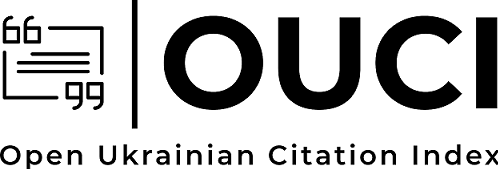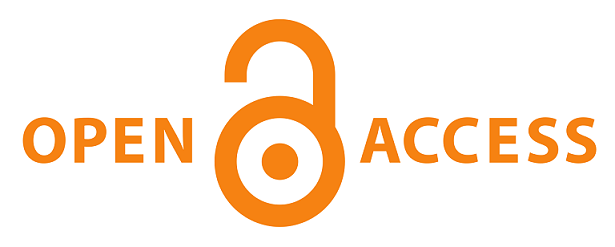EUROPEAN EDUCATIONAL ENVIRONMENT IN THE AGE OF ENGLIGHTENMENT: DISCUSSIONS ON GENDER PARAMETERS OF EDUCATION
DOI:
https://doi.org/10.28925/2524-0757.2017.21Keywords:
Educational Process, Educational Space, Gender, Female Education, EnlightenmentAbstract
The problem of upbringing and education of the younger generation has been drawing attention of teachers, thinkers, politicians, statesmen, and public figures from the dawn of time. The interest of national and foreign scholars to gender parameters of education is driven by formation of scientific direction “history of women” / gender studios in the last third of the 20th century. However, many social and cultural issues remain out of sight of national scholars, particularly issues of the European educational environment of the modern age, and this makes study of them actual. The goal of the article is to detect gender parameters of the educational environment of Europe in the Age of Enlightenment in the context of formation of foundations of the education system of the modern civilization of the West. Gradual destruction of previous religious practices and growing authority of thinkers in society in the Age of Enlightenment in Europe made the topic of education a popular subject of discussion. The problem of moral upbringing and education of the younger generation took an important place in works of enlighteners. Ideologues of the Enlightenment thought that the perfect society could be reached through propaganda and dissemination of knowledge, education, and imposition of high moral principles to individuals. Enlighteners considered the educational model of those times imperfect, and they proposed different reformation projects, in which a significant place was devoted to education and training of males and females. Enlighteners assumed female education exclusively as a mean required for preparation of new male generations, as a way to upgrade morality of a male society. Women were mostly limited to elementary education. It took them a whole century to reach the next level. Images and models of female education are usually correlated with prevailing attitudes of public opinion about it. In fact, alignment of gender parameters of education in the Age of Enlightenment included not only the need for women to study, but also transformation of social ideal of female education; media, didactic literature, and housekeeping practices became markers of that.
Downloads
References
Bovuar, S. (1997). Vtoroi pol. Moskva, Progress; Sankt-Peterburg, Aleteia, p. 832 (in Ukrainian).
Gelvetskii, K. A. (1938). O cheloveke, yego umstvennykh vozmozhnostiakh i yego vospitanii (in Russian). http://www.gumer.info/bibliotek_Buks/Pedagog/galag/13.php
Hendernyi pidkhid: istoriia, kultura, suspilstvo. (2003). In edit. by Hentosh, L., Kis, O. Lviv, VNTL- Klasyka, 250 p. (in Ukrainian).
Svift, Dzhonatan. (1981). Dnevnik dlia Stelly. In edit. by Mikhalskaia N. P. Moskva, 624 p. (in Russian).
Paradoksy epokhi Vozrozhdeniia i Prosveshcheniia. (2008). In edit. by Diuba Zh., Perro, M., Zemon, Dévys, Farzh, A., translation by Pushkareva, N. L. Istoriia zhenshchin na Zapade, v 5 t., T. 3. Sankt-Peterburg, Aleteiia, 345 p.
Labutina, T. L., Ilin, D. V. (2012). Angliiskoie Prosveshchenie: obshhestvenno-politicheskaia i pedagogicheskaia mysl. Sankt-Peterburg, Aleteiia, 325 p. (in Russian).
Labutina, T. L. (2001). Vospitanie i obrazovanie anglichanki v XVII veke. Sankt-Peterburg, Aleteiia, 247 p. (in Russian).
Lokk, D. (1913). Mysli o vospitanii i o vospitanii razuma. Sankt-Peterburg, Shkola i zhizn, 347 p. (in Russian).
Materialy po istorii russkoi literatury i kultury. Russkaia zhenshchina 30-kh godov. (Pisma Ye. A. Gan). (1911). Russkaia mysl, 12, 54–73 (in Russian).
La Chalotais, Louis. René de Caradeuc (1770). Opyt narodnago vospitaniia ili chertezh nauk, v polzu yunoshestva. Sankt-Peterburg, 226 p. (in Russian).
Pimenova, L. A. (2012). Magistraty protiv iezuitov: spory o natsionalnom i religiozno-konfessionalnom obrazovanii vo Frantsii v seredine XVIII v. (In edit. by A. O. Chubarian). Odissei: chelovek v istorii, 73–89 (in Russian).
Repina, L. P. (2002). Zhenshchiny i muzhchiny v istorii: Novaia kartina yevropeiskogo proshlogo. Ocherki. Khrestomatiia. Moskva, ROSSPEN, 352 p. (in Russian).
Russo, Zh.-Zh. (1981). Emil, ili o vospitanii. Pedagogicheskie sochineniia, Vol. 1, Moskva, Pedagogika, 590 p. (in Russian).
Trofimova, V. S. (2013). Filosofskie podkhody k «zhenskomu voprosu» u istokov sovremennogo feminizma (in Russian). http://roii.ru/dialogue/42/roii-dialogue-42_17.pdf
Ukrainky v istorii. (2004). In edit. by М. Borysenko. Kyiv, Lybid, 328 p. (in Ukrainian).
Projet pour perfectionner l’éducation ; avec un Discours sur la grandeur et la sainteté des hommes. Par M. l’abbé de Saint-Pierre. P. 1728. http://gallica.bnf.fr/ark:/12148/bpt6k82345w
De la Fare. (1768). Le Gouverneur: Ou, Essai Sur L’ Education. Раris.
Lapied M., Leduc G. (2011) Réécritures anglaises au xviiisiècle de l’«égalité des deux sexes» de François Poulain de la Barre. Du politique au polémique, Annales historiques de la Révolution française, 206–207.
Roche D. (1993). La France des Lumières. P., Fayard.
Traité du choix et de la méthode des études, par M. Claude Fleury (1687). Mode d'accès
Published
How to Cite
Issue
Section
License
Copyright (c) 2018 Kyiv Historical Studies

This work is licensed under a Creative Commons Attribution-NonCommercial-ShareAlike 4.0 International License.
Authors who publish in this journal retain the right of authorship of the work and give to the journal right of first publication of this work under the conditions of Creative Commons: Attribution-NonCommercial-ShareAlike 4.0 International (CC BY-NC-SA 4.0), which allows others freely distribute the work published with reference to the authors of the original work and the first publication of this magazine.














